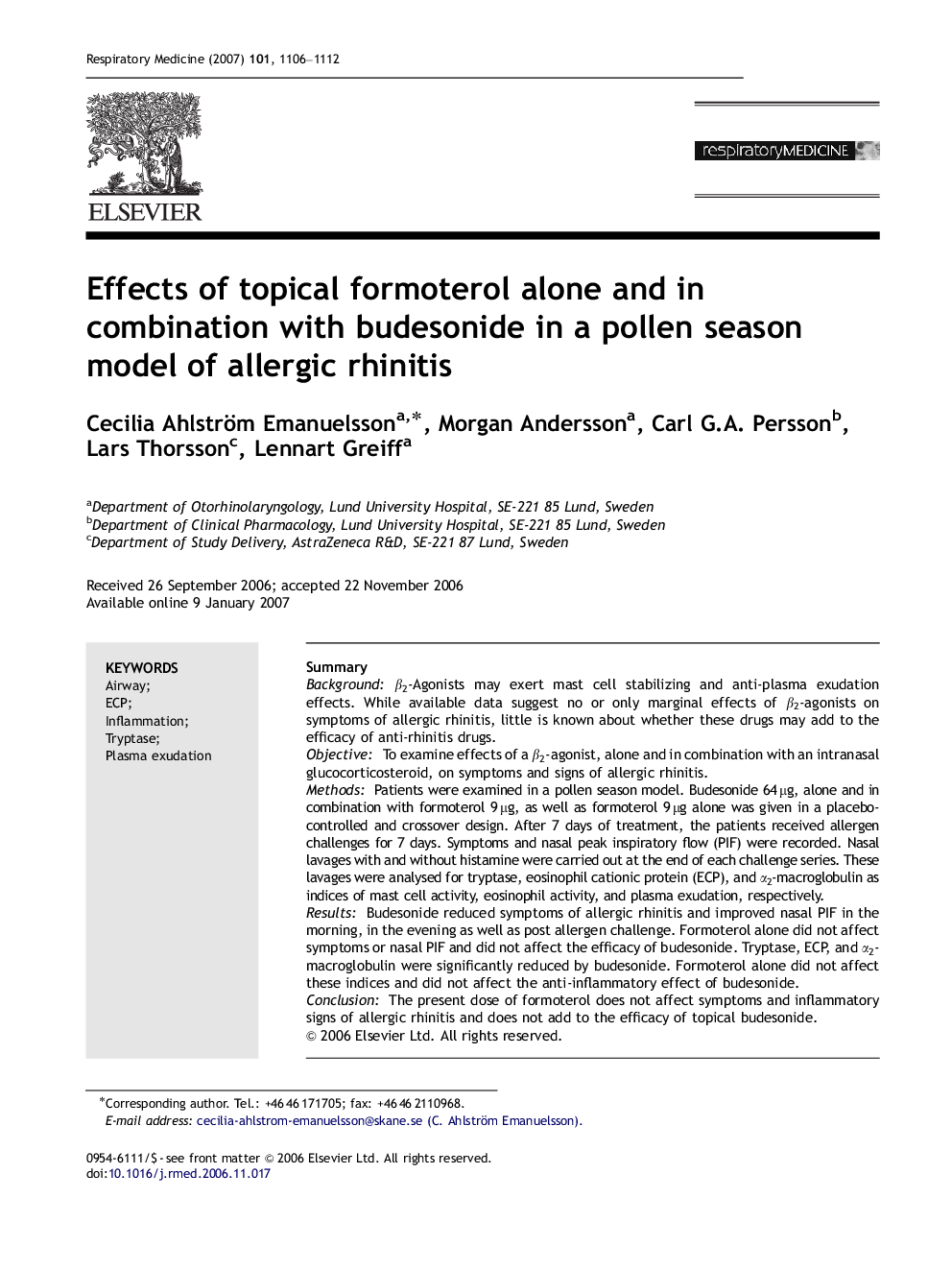| Article ID | Journal | Published Year | Pages | File Type |
|---|---|---|---|---|
| 4211649 | Respiratory Medicine | 2007 | 7 Pages |
SummaryBackgroundβ2-Agonists may exert mast cell stabilizing and anti-plasma exudation effects. While available data suggest no or only marginal effects of β2-agonists on symptoms of allergic rhinitis, little is known about whether these drugs may add to the efficacy of anti-rhinitis drugs.ObjectiveTo examine effects of a β2-agonist, alone and in combination with an intranasal glucocorticosteroid, on symptoms and signs of allergic rhinitis.MethodsPatients were examined in a pollen season model. Budesonide 64 μg, alone and in combination with formoterol 9 μg, as well as formoterol 9 μg alone was given in a placebo-controlled and crossover design. After 7 days of treatment, the patients received allergen challenges for 7 days. Symptoms and nasal peak inspiratory flow (PIF) were recorded. Nasal lavages with and without histamine were carried out at the end of each challenge series. These lavages were analysed for tryptase, eosinophil cationic protein (ECP), and α2-macroglobulin as indices of mast cell activity, eosinophil activity, and plasma exudation, respectively.ResultsBudesonide reduced symptoms of allergic rhinitis and improved nasal PIF in the morning, in the evening as well as post allergen challenge. Formoterol alone did not affect symptoms or nasal PIF and did not affect the efficacy of budesonide. Tryptase, ECP, and α2-macroglobulin were significantly reduced by budesonide. Formoterol alone did not affect these indices and did not affect the anti-inflammatory effect of budesonide.ConclusionThe present dose of formoterol does not affect symptoms and inflammatory signs of allergic rhinitis and does not add to the efficacy of topical budesonide.
